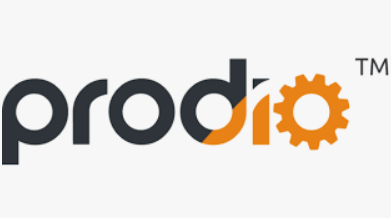
What kind of manufacturing software is the best for a small company?
For a small or medium-sized company, the business puzzles consist of different pieces than for a large factory. Forget complicated ERP systems, AI, and Industry Revolution 4.0. The much-sought afterwords are: affordable, easy-to-use, agile, real-time tracking, smooth communication, cost-cutting. There is an extra bonus for full control and visibility or fast deployment. The critics might say that these are only words, with little or no tangible meaning. However, for a small manufacturing company they carry the essence of the daily workload.
Nevertheless, many businesses dream about automated scheduling, thinking such functionality is necessary to improve their management in order to get to the next level. On the contrary, this attitude can make them vulnerable to the whole array of marketing gimmicks, where automated planning is used as a hot button, tipping the scales in favour of some advanced ERP software system.
Why do small companies start to search for manufacturing software?
Searching for ERP or another manufacturing software system is often dictated by the fact that a company wants to track key metrics and improve workshop productivity. Company owners are taken in by sophisticated systems offering ‘all in one’ products.
Why ERP/automated planning software is a bad idea for a small business?
· It limits flexibility and makes custom production difficult a task. In a small manufacturing business, there isn’t time for the team to spend one hour entering painstakingly all data into the system, dividing the product into smaller parts, logistic minimum, surplus material, or material loss. Time is money, so the moment the order comes from a client the work should start. This is a competitive advantage.
· Tons of data. Nobody cares about complicated metrics, the percentage of losses, creating alternative technology, calendar and prior scheduling, which would take into account every scenario possible.
· They don’t come cheap. The more modules you want the more you pay, so you may end up spending hundreds of dollars and still not access all necessary manufacturing features.
· Specialised training, difficult implementation and technical service. There is a lot to learn to start using the system. The ERP’s functionality depends on proper training and many of the staff might be resistant to that. Advanced systems are loaded with features, and that can be daunting to your workforce. You need to hire a company to direct the implementation process and still the project might be painful, and customisation costly and time-consuming. Also, if there is a fault you are not likely to solve it yourself. You will have to call qualified service, which means more spent time and money.
No need for expensive purchases
The fact that you are after production management software doesn’t mean that an advanced solution is what you have in mind. It is still possible to start optimising your costs and operations and make data-driven decisions that improve your business performance, without purchasing some expensive software.
It is a good idea to start with something simple and build from there. For example, mid-size companies often begin with simple manufacturing software to automate basic accounting tasks and allow managers to easily view the flow of money into and out of the organization.
What kind of functionalities do you want for a small manufacturing company:
1. Features that will help you to organise your production by regaining control and learning about real cost and productivity. Simple norms and information for estimating lead times and tracking efficiency.
2. Tools that will identify patterns and flag anomalies that require more action.
3. Something which enables faster communication between the manager and shop floor, so everybody is up to date and has a clear vision of the working schedule.
That perfect tool would organise your shop floor with interactive, graphical planning (so you or the planner could easily set things up, without the need of remembering each tiny detail). Workers could see the list of orders with indicated priority and notes attached when necessary. That software would also point to stock levels, so you can balance production (supply/demand). Your products database would update on spot and grow constantly as you feed it more data with every new product or technology. There will be no more threats of relying solely on someone’s memory and knowledge – the precious know-how will be in the software.
Prodio manufacturing software
You can start transforming your company without buying an expensive ERP system. There are different solutions, such as Prodio manufacturing software. It is a cloud-based tool designed for rapid deployment with no up-front costs. Customisable, web-based dashboards provide the visibility and transparency to understand production performance and status at a glance.

In addition, you can manage the shop floor operations, inventory, equipment and workers to ensure your products are flawless and up to the customer’s satisfaction.
Products-based companies typically want to digitise inventory and order management right away and simplify employee time and resource tracking and project billing.
Purchasing and implementing manufacturing scheduling software can be intimidating, even overwhelming. But the solutions available today allow companies to take it one step at a time and add what they need when they need it. Never before has this been within reach for even the smallest companies, and it is good to take advantage of that.
Latest news

9th April 2025
FIT Show Launches Comprehensive CPD Learning Programme - Registration Now Open!
FIT Show, the UK’s leading trade event for the window, door, flat glass, hardware, components, and roofing industries, has unveiled its extensive learning programme for the 2025 event.
Posted in Architectural Ironmongery, Articles, Building Industry Events, Building Industry News, Building Products & Structures, Building Services, Building Systems, Continuing Professional Development (CPD's), Doors, Exhibitions and Conferences, Glass, Glazing, Innovations & New Products, Posts, Restoration & Refurbishment, Roofs, Seminars, Timber Buildings and Timber Products, Training, Windows
8th April 2025
First look at industry speakers for GEO Business 2025
GEO Business, the UK’s premier geospatial event, is set to return to ExCeL London on 4 – 5 June 2025, bringing together the brightest minds in the industry.
Posted in Articles, Building Industry Events, Building Industry News, Building Products & Structures, Building Services, Exhibitions and Conferences, Information Technology, Innovations & New Products, Restoration & Refurbishment, Retrofit & Renovation, Seminars
8th April 2025
Digital Construction Week 2025 announces first wave of industry-leading speakers
Digital Construction Week (DCW), the UK’s premier event for digital innovation in the built environment, is set to return to ExCeL London on 4 – 5 June 2025.
Posted in Articles, BIM, Infrastructure & CAD Software, Building Industry Events, Building Industry News, Building Products & Structures, Building Services, Building Systems, Civil Engineering, Exhibitions and Conferences, Hard Landscaping & Walkways, Health & Safety, Information Technology, Innovations & New Products, Landscaping, Retrofit & Renovation, Seminars
7th April 2025
Abloy UK provides bespoke access control solution for CPA Group’s Lanarkshire HQ
Abloy UK has supplied CPA Group with its PROTEC2 CLIQ solution to streamline access control and protect assets at its headquarters in Shotts, Lanarkshire.
Posted in Access Control & Door Entry Systems, Architectural Ironmongery, Articles, Building Industry News, Building Products & Structures, Building Services, Case Studies, Doors, Facility Management & Building Services, Health & Safety, Restoration & Refurbishment, Retrofit & Renovation, Security and Fire Protection
 Sign up:
Sign up: